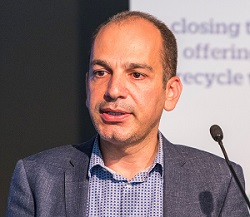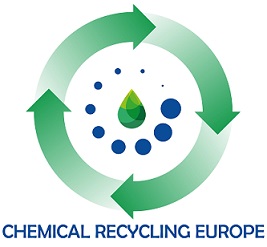 Could you introduce us to ChemRecEurope, its competencies and tasks?
Could you introduce us to ChemRecEurope, its competencies and tasks?
Chemical Recycling Europe (ChemRecEurope) was created early 2019 by key European companies involved in the development of chemical recycling technologies, including Plastic Energy, ReNew ELP, Gr3n, Ioniqa Technologies and IGE Amsterdam with the vision of establishing an industry platform for developing and promoting innovative chemical recycling technologies for polymer waste across Europe. The new platform will enable its members to act more united.
While ChemRecEurope’s mission is to represent the interest of its members to political bodies and the public, it also aims to deepen collaboration with the EU Institutions and develop positive industry-wide relationships throughout the whole chemical recycling value chain in Europe in order to boost polymer recycling.
ChemRecEurope is a young association which continues to grow as from 2020 we have two new members: Clariter and Arcus Greencycling. Carlos Monreal, CEO of Plastic Energy, has appointed by Executive Committee as the first President of ChemRecEurope. Last but not least, for the first time, we organised the first European Chemical Recycling Conference last year, focusing mainly on presenting the different types of solutions, the regulatory challenges as well as how chemical recycling can contribute to creating a circular economy for plastics. The second edition has been scheduled for 26-27 May 2020 in Brussels.
Why does chemical recycling matter?
Plastic has many valuable uses; however, we are all concerned about the impact of plastic waste with its severe environmental consequences. Reducing single-use plastic is one way of tackling the issue but while plastics and in particular plastic packaging play a vital role in protecting and preserving the safety and quality of food for consumers and contributing to a healthier future, they should be used responsibly. This way plastic materials become a resource to be recovered rather than merely a waste in the environment. We need to stop the use of landfill, and heavily reduce incineration to dispose of plastic waste and find innovative ways to introduce a circular economy.
Chemical recycling is a complementary solution for recycling end-of-life plastics and an important additional solution for the circularity of plastics. It also helps us to overcome the current challenges of mechanical processes, by taking a broader range of plastic waste, avoiding downcycling, and increasing overall recycling rates. The fact is that the quality of the recycled content from mechanical recycling is in many cases not sufficient to replace the virgin quality material necessary for making food-grade packaging.

Furthermore, as part of its Circular Economy Package, the Commission illustrates its ‘vision for Europe’s new plastics strategy’ by defining goals to limit plastic waste, increase resource efficiency, and create value and job growth in Europe. However, it mainly focuses on mechanical recycling, thus it falls short of presenting a comprehensive approach. Concrete steps towards increasing plastic waste recyclability and reducing landfilling and incineration involve supporting innovative recycling solutions such as Chemical Recycling. We believe that the ambitious targets set up in the EU Plastics Strategy will not be achievable without implementing chemical recycling as it allows the use of wider feedstock and create high-quality recycled content.
Therefore, chemical recycling represents one of the obvious solutions to tackle plastic pollution, to conserve natural resources and protect the environment. It targets heterogeneous and contaminated plastic waste material, when separation is neither economical nor technically feasible, reduces the amount of fossil oil needed to produce commodity plastics, and reduces landfilling or incineration of plastic waste. Chemical recycling enables us to produce infinitely high-quality output, leading to the creation of virgin quality recycled plastics and/or other valuable chemical products.
What are the main challenges with regard to the development of chemical recycling industry?
Chemical recycling is becoming an increasingly prominent complementary route for plastics waste in order to close the loop. To make the circular economy a reality, we call for regulations and policies supporting the development of these new technologies. The right policies and regulations can promote high rates of recycling happening in Europe and prevent plastic waste in the environment. Today, the speed of technology growth and deployment is outpacing the regulation and policy around it. Lack of structured and harmonized approach to waste collection and recycling causes constraints on companies that can create new value-added products from this waste. The current waste management system makes it very difficult for companies offering better solutions to get access to waste plastic landfilled, incinerated, or exported. Efficient harmonized collection and segregation systems across European countries would secure the required feedstock for chemical recycling plants.
In addition, an unequal playing field may become a barrier to eventual implementation of chemical recycling. Establishing of the same EPR systems for mechanical and chemical recycling and recognition of chemical recycling as recycling across Europe and counting in the recycling targets is necessary for further industrialization of chemical recycling technologies. The Netherlands has already taken some steps towards this recognition and support of the industry.
Chemical recycling is also a more sustainable and environmentally friendly alternative to incineration and landfilling, this is demonstrated by life-cycle analysis.
It is worth mentioning here that ChemRecEurope is committed to provide, as soon as the development of the industry enables us, an LCA to ensure that the chemical recycling process creates a value for the environment in terms of saving energy and emissions.
And your final message?
There are still open questions and challenges ahead with regards to the technologies and the regulations. A strong collaboration with the value-chain is essential to develop this industry and tackle some of the challenges, as well as the work with policymakers to close the gap between innovations and regulations.
There is now a growing movement recognising chemical recycling as part of the solution to reduce plastic pollution, decrease CO2 footprint and contribute to the creation of a circular plastics economy.
We are confident that recycling rates will improve, once the environmental and economic benefits of chemical recycling are fully understood and sufficient investment is made to establish the infrastructure needed to enable the deployment of chemical recycling in Europe.
 Dr Mohammad Hayatifar
Dr Mohammad Hayatifar
Secrétaire général
solutions@chemicalrecyclingeurope.eu
Tél. : +32 (0) 2669 18 76
Avenue de Cortenbergh 71,
1000 Bruxelles
Belgique

















